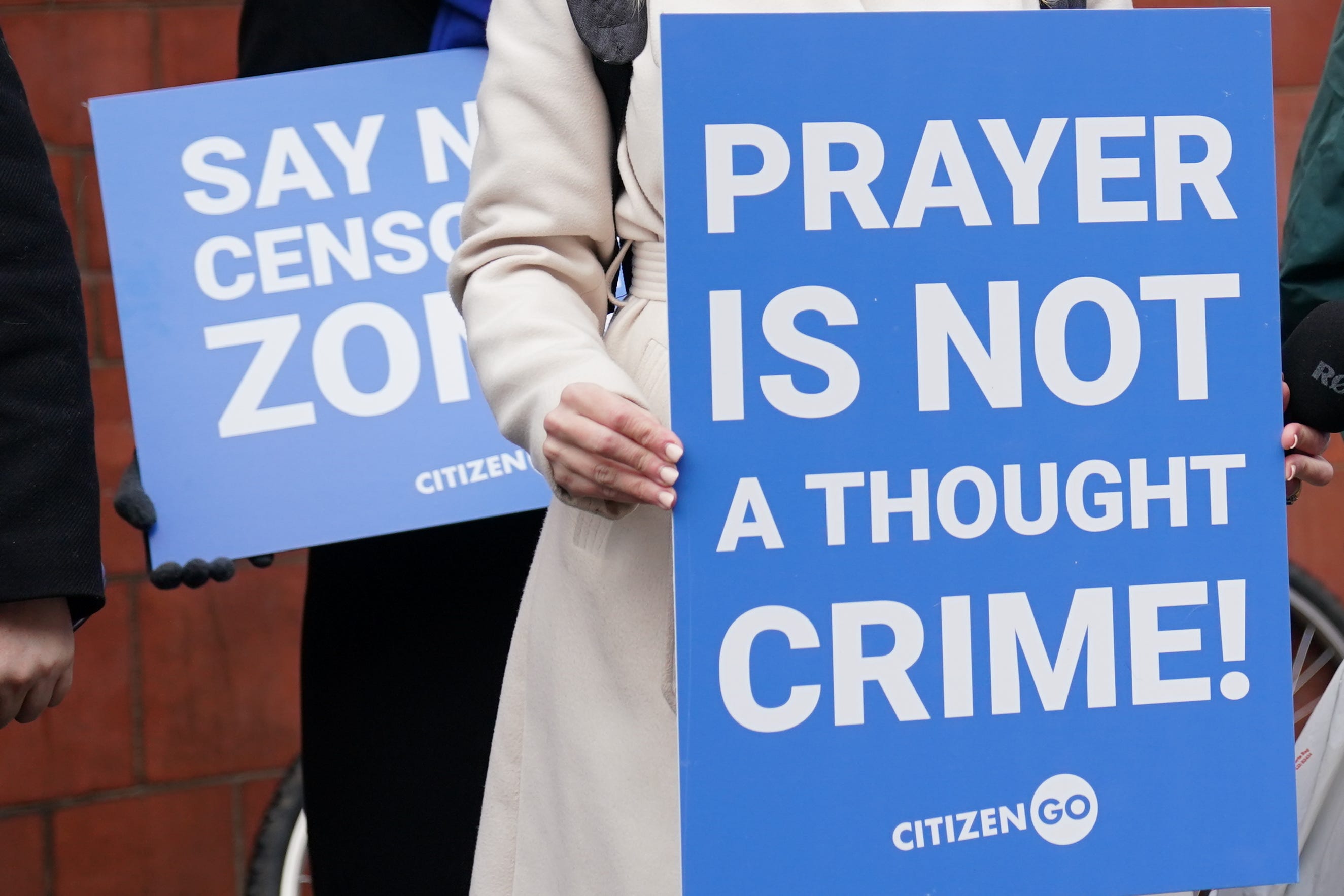MPs reject calls to allow ‘silent prayer’ in abortion clinic buffer zones
In a free vote in the House of Commons, the proposal was defeated by 116 votes to 299, majority 183.

Your support helps us to tell the story
From reproductive rights to climate change to Big Tech, The Independent is on the ground when the story is developing. Whether it's investigating the financials of Elon Musk's pro-Trump PAC or producing our latest documentary, 'The A Word', which shines a light on the American women fighting for reproductive rights, we know how important it is to parse out the facts from the messaging.
At such a critical moment in US history, we need reporters on the ground. Your donation allows us to keep sending journalists to speak to both sides of the story.
The Independent is trusted by Americans across the entire political spectrum. And unlike many other quality news outlets, we choose not to lock Americans out of our reporting and analysis with paywalls. We believe quality journalism should be available to everyone, paid for by those who can afford it.
Your support makes all the difference.MPs have rejected attempts to allow “silent prayer” outside abortion clinics in England and Wales, amid warnings new buffer zone measures risk making “thoughtcrime” a reality.
The Public Order Bill contains powers to make it an offence to interfere with, intimidate or harass women accessing, or people providing, abortion services.
Protesters found guilty of breaching the “safe access zone”, which would extend 150 metres from clinics, could be fined.
But a group of Tory and DUP MPs tabled an amendment aimed at ensuring no offence is committed if a person is “engaged in consensual communication or in silent prayer” outside the clinics or hospitals offering abortion services.
In a free vote, the proposal was rejected by 116 votes to 299, majority 183.
The division list showed Home Secretary Suella Braverman and Attorney General Victoria Prentis were among the 109 Conservative MPs, two of whom were tellers, who supported the amendment while 109 Tory MPs voted against.
Labour MP Stella Creasy (Walthamstow), writing on Twitter, said buffer zones had been “protected from the sabotage amendment” and it would enable women to “access an abortion in peace”.
Clare Murphy, chief executive of the British Pregnancy Advisory Service (BPAS), added on Twitter: “Anti-choice activists who stand outside our clinics talk about a lifetime of abortion regret.
“Women generally don’t regret abortions, but what stays with them – even decades on – is the invasion of their privacy by these people when they sought our help.”
Alithea William, the Society for the Protection of Unborn Children’s (SPUC) public policy manager, said in a statement: “It is very disappointing that MPs have rejected even this modest amendment, which was trying to ensure that thoughtcrime was not enshrined in UK law.”
Conservative MP Andrew Lewer (Northampton South), moving the amendment, earlier told the Commons: “This section of the Public Order Bill is leading us into the territory of thoughtcrimes and creates unprecedented interference with the rights to freedom of speech and thought in the UK.”
Conservative former minister Sir John Hayes added: “We now have people arrested for praying, interrogated by the police, asked what they’re praying about, what they’re thinking.
“This is dystopian. It’s like a mix of Huxley, Philip Dick and all that.
“It is unthinkable that we should be living in a society where what people think has become a matter of police interest.”
But Labour MP Rupa Huq (Ealing Central and Acton), who has long campaigned for safe access zones at abortion clinics, criticised the attempts to amend the Bill further.
She said: “Any person using medical services should be able to do so without navigating an obstacle course of people trying to impose their view of what is right into the process to dissuade and deter.
“Even in the reviled regime of Iran they got rid of their morality police. Why do we allow them here?”
Ms Huq added that people can have their say but “move them away from the clinic door”.
For Labour, shadow Home Office minister Sarah Jones also said: “I am a person of faith. I’ve also walked into an abortion clinic.
“I pray, but I also know how intimidating it is to walk past people silently standing there with signs trying to communicate, trying to pray, trying to persuade women to change their mind.”
The Bill as a whole aims to curb the guerrilla protest tactics used by groups such as Just Stop Oil, Insulate Britain and Extinction Rebellion.